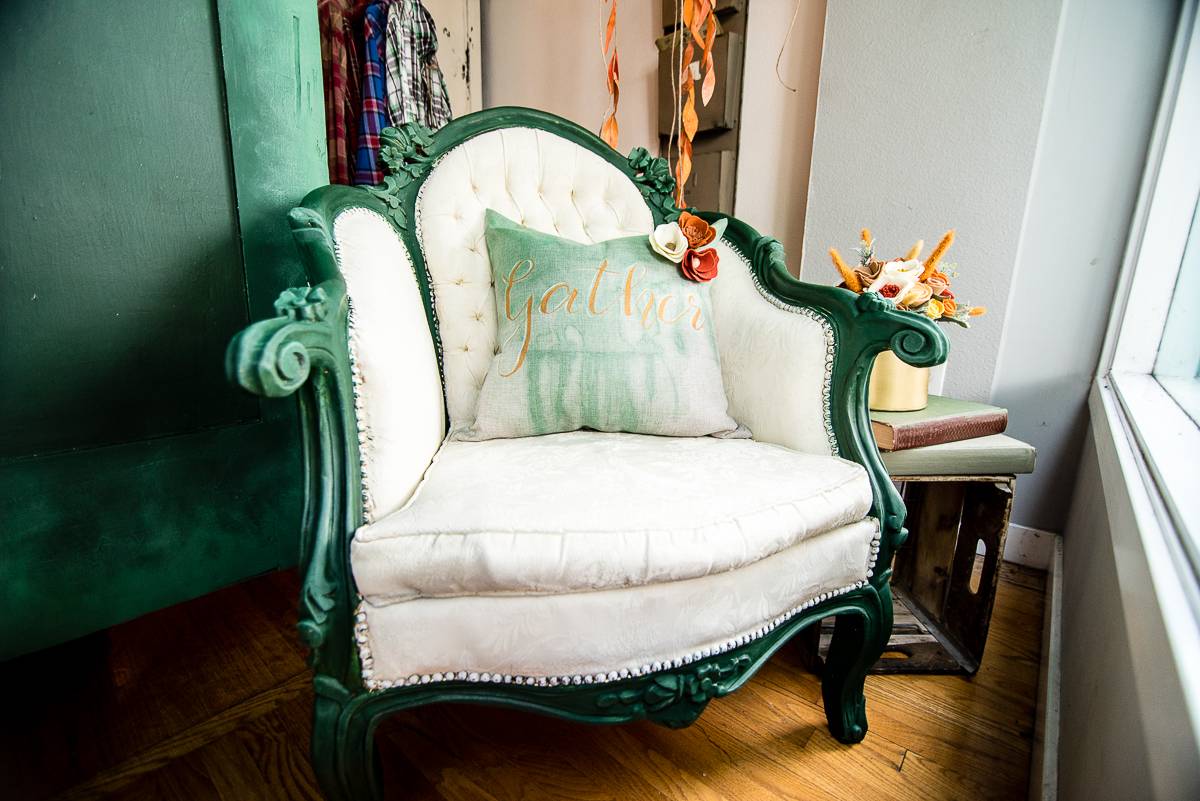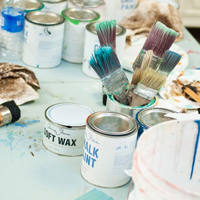Painting upholstery is a highly debatable process. Some people swear by it, and others yell from the roof tops “IT’S NOT POSSIBLE.”
No matter your opinion on the subject, painting upholstery is counter-intuitive to say the least.
I’ve done a handful of painted upholstery projects over the years. Some of them have been a major bust, others just okay and still others a whopping success (you can read about our “epic fail” about painting a sofa).
So how do you determine if you have upholstery worth painting?
First, it needs to be a tightly woven fabric. Silk fabrics are perfect and fabrics with a tight, embroidered pattern work exceptionally well. Velvet, pleather and leather is also ideal for painting. You want to stay away from fabric that has loose weave or “pilling” (1970’s and early 80’s pieces often have that type of material…you can read why in this post).

BEFORE: Picture courtesy of Annie Sloan and Painter in Residence, Johnathon Marc Mendes
Keep in mind, once the fabric is painted it will certainly feel different. It will be much stiffer feeling. However, with time and burnishing, the stiffness will soften slightly making it much more comfortable to the touch.

AFTER: Picture courtesy of Annie Sloan and Painter in Residence, Johnathon Marc Mendes
Step One
Determine your process. For tufted chairs, I prefer using a paint sprayer to get into the deep areas where the fabric is gathered. A paint sprayer allows for multiple thin coats to reach those deep areas without the paint pooling, dripping or gathering in the recesses. If your piece is is flat (not gathered or tufted), then brushing or rolling the paint works just as well.
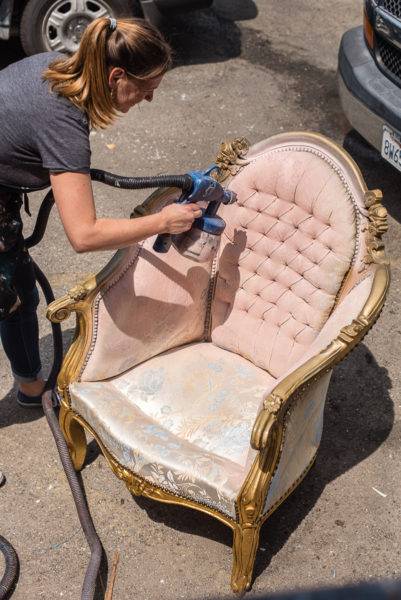
Step Two
Thin down your Annie Sloan Paint. Add a little bit of water in the paint to thin it down. If you are spraying it, then you’ll need a bit more water than if you are rolling or brushing the paint.
Step Three
Begin painting. Fabric takes multiple thin coats. So, don’t be impatient and don’t apply the paint too heavily.
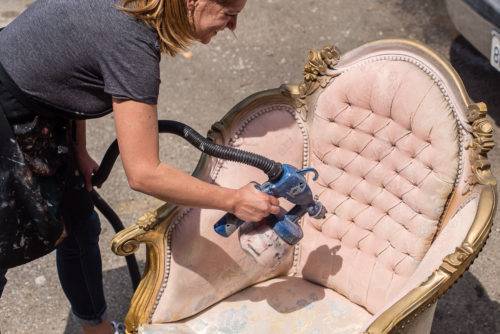
I sprayed the tufting and areas around the upholstery tacks
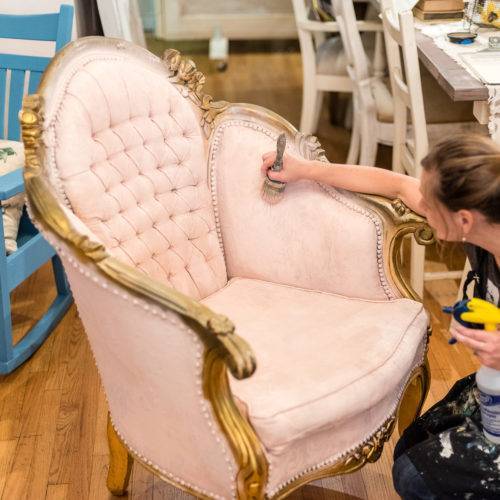
I followed up the spraying with a brush for better coverage on the body of the chair
Step Four
Once the paint is dry, you can either seal it with clear wax, or (my preferred method) is to leave it unsealed and burnish the fabric. Take a 1200 grit sandpaper and rub it over the entire piece. The burnishing will soften the feel, give it a mild protective finish and make it feel nicer to sit in.
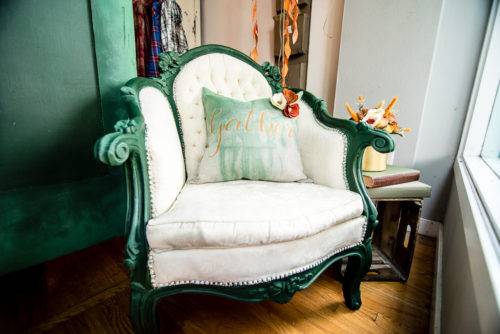
Same chair style, different color (Amsterdam Green and Old White)
Step Five
Leave the painted piece in the sun on a hot day, or use the high heat setting on a blowdryer or heat gun to heat seal the paint (only if you don’t use wax).
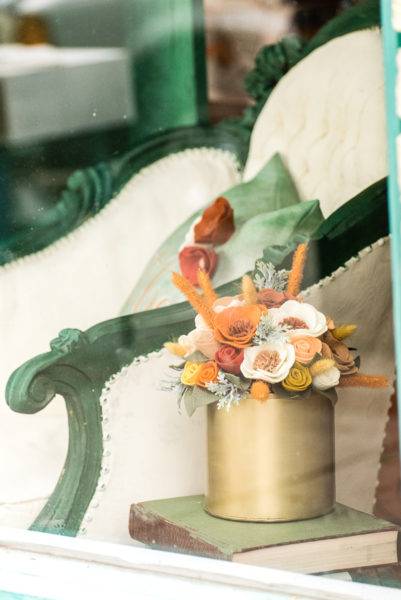
Step 6:
Enjoy comfort and style of a new looking chair on a budget!

